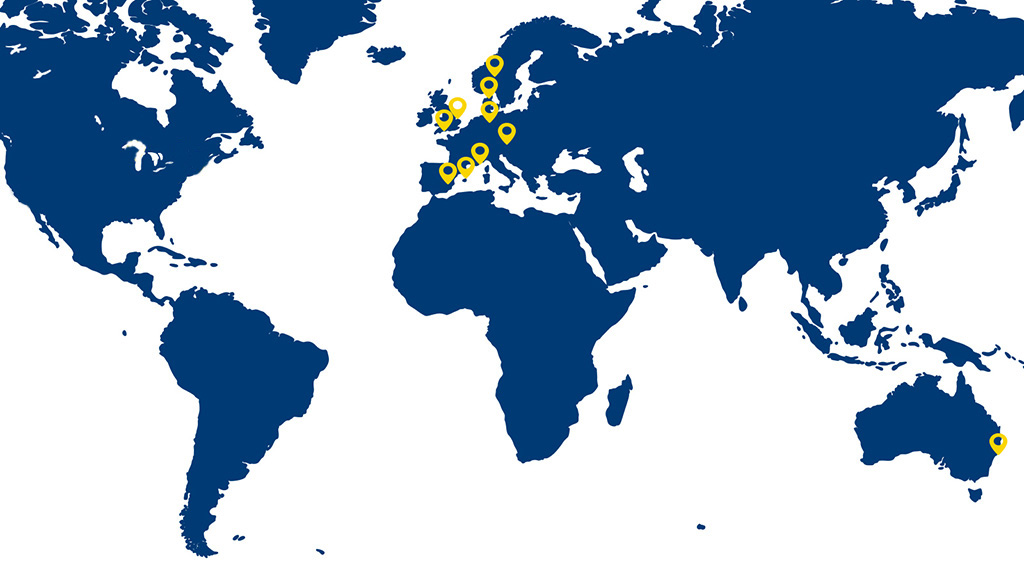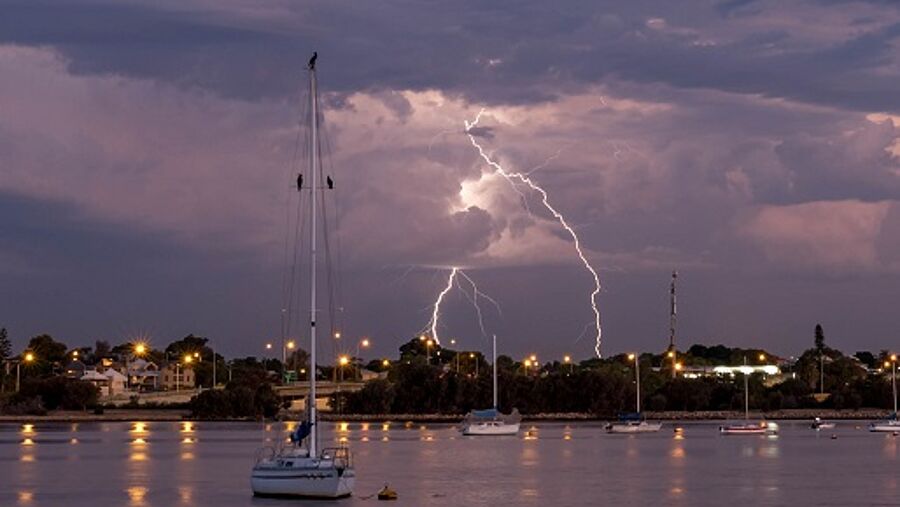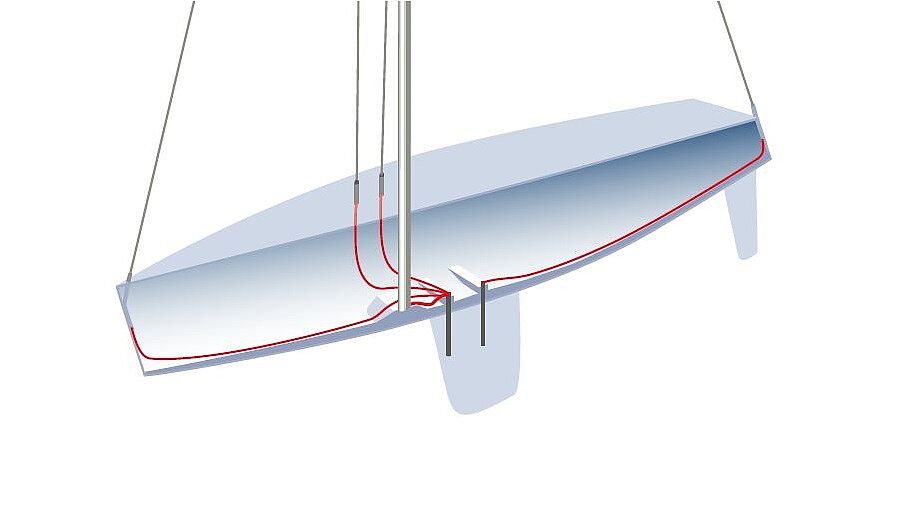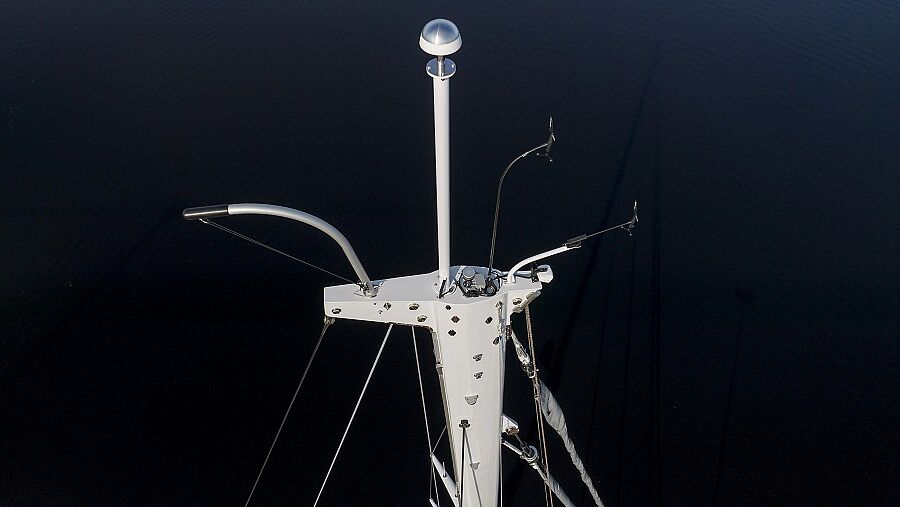
* Pantaenius UK Limited is authorised and regulated by the Financial Conduct Authority (Authorised No.308688)
The effectiveness of correctly installed lightning protection systems has long been proven; however, regrettably such devices are not yet standard on boats and yachts. But owners can act. Specialist companies offer several possibilities of averting or at least reducing the devastating effects of a lightning strike; these possibilities are described briefly below.
Damage due to lightning strikes is increasing. In recent years, the number of such events has tripled at Pantaenius. The relative proportion in the total damage sum is already now around ten percent; and counting. The effects of a direct or indirect lightning strike may vary greatly; however frequently represent considerable hazards for persons and to materials.

Lightning protection systems are sophisticated devices and fulfil a crucial function on board. Therefore, installation should always be executed by a specialist company. A technically operational lightning protection system generally comprises a combination of lightning conductor and surge protector. Apart from this, the DDCE inhibitor system aims to actively prevent the strike of lightning by providing a potential equalisation in the direct surroundings of the vessel. The concrete measures to be taken depend to a great extent on cruising area and ship type. Shipyards, dealers or yacht electricians can provide advice on many issues concerning lightning protection on board and implement the corresponding work. Do-ityourselfers are well advised to have their work surveyed conclusively and documented by a specialist.
Conducting lightning is intended to capture and conduct to earth the electrical energy, which may briefly be several thousand volts and ampere. This is achieved by all conductive components on board being connected to one another and to the earth thus implementing a consistent electrical potential. When installed successfully, flashovers to persons are thus prevented and damage to the boat can be minimised. One or more copper or steel lightning rods are attached to the mast top and other exposed parts depending on the protection class aimed at and the structure of the boat. Expertly installation results in a protective zone covering all areas of a ship. The energy of the lightning is conducted to earth via the lightning rod.
This is effected on sailing yachts via the metal mast as well as the shrouds and stays. Sailing yachts with wooden masts as well as motor yachts use a copper cable to conduct the energy to earth. In any case, sufficient dimensioning of the lightning rod(s) and the conductors must be observed. Earthing is effected via a steel hull, an installed earthing plate or the keel. Yachtsmen must ensure that the earth is underwater even during heeling. Even if lightning can be conducted through a boat or yacht now, potential equalisation must be effected inside as well to protect against hazardous voltage and flashovers. This means that all conductive components have to be connected to one another and to earth. These include e.g. cooker, sink and basins, batteries. Note: the conductor connections must withstand the enormous currents of the lightning. Most standard connectors normally used on board are not suitable for this purpose.

This is a surge protection switch, which protects equipment connected downstream such as navigation equipment, ship lighting and any other electrical equipment connected on board in the event of surges in voltage. This form of lightning protection prevents damage due to inductive and capacitive overvoltage if lightnings strike in the direct vicinity of a yacht. Board cables should be installed in shielded cable ducts and so-called lightning arresters and flashover arresters installed in the on-board electrical system, the land connection and the inputs and outputs of the signal lines to ensure effective surge protection. Electrical systems are frequently divided into several lightning protection zones subdivided by the named conductors. The capacity of individual conductors is aligned to the potential hazard due to any currents occurring.
Unlike the conventional method of lightning conduction, the market is now offering an alternative method for preventing lightning damage on board. The so-called DDCE system from Dinnteco uses the principle of potential equalization so that no lightning occurs at all in a protected area around the boat or yacht. Via the DDCE, excess negative charges are absorbed from the air and discharged through the grounding. This process eliminates positively charged upward currents and thus prevents the formation of a lightning channel or guide lightning within the coverage radius of the device. The larger the DDCE, the more negative charge the device can dissipate and the larger the protected area. The system requires only an adequate grounding and no power supply.
Originally developed for building protection, the system has been further developed especially for marine applications and promises a highly efficient reduction in the probability of lightning striking the protected area. The DDCE system, if properly installed, is recognised by Pantaenius as an adequate lightning protection system. In Europe, the DDCE system is currently sold exclusively by the Hamburg-based company ELNA, which specialises in safety and communication technology as well as electrical components in the fields of aviation, shipping and vehicle technology.

ELNA GmbH
Heidehofweg 22
25499 Tangstedt
+49 (0)4101 301-01
info@elna.de
www.elna.de